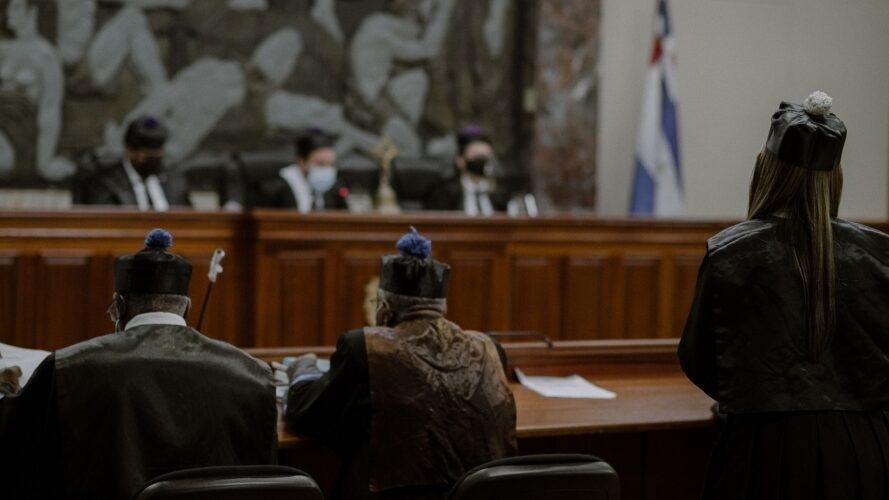Appeals Court Increases Sentence in Trafficking Case
Sex Trafficking
On February 9, the Criminal Court of Appeals in the Dominican Republic more than doubled a sentence, going from six years to 15, against the leader of a criminal network that recruited, hired, transferred, transported foreign women and profited from their sexual exploitation in a night club.
The aggressor and his network lured women living in poverty and vulnerable conditions with the promise of a better job and paid for their flights to the Dominican Republic. Women were trafficked from Colombia, Venezuela, Ukraine, Peru, the United States, Spain, Brazil, Russia, and the Republic of Belarus. Upon arrival, members of this criminal organization confiscated their passports and told each woman she would have to pay off an ever-increasing debt by doing sex work. They were restrained by armed employees and kept in a house, then taken to the bar each night. Night after night, the leader would force them to work for as little as USD 8.50, then take 50% of the money for himself. The funds were directed to an account he had in the United States.
In 2016, IJM supported local authorities in the rescue of 15 Colombian women, after a two-year investigation. The aggressor was first convicted in July of 2019 and given a six-year sentence on the accounts of human trafficking, sexual exploitation, money laundering and illegal possession of arms. Both the aggressor and IJM appealed the court’s decision.
Both appeals were accepted by the criminal court in February 2020 and scheduled for March of the same year. Days before the appeal hearing occurred, the Dominican Government declared a nationwide state of emergency due to COVID-19, and to ensure the health of public officials, courts were closed.
Almost a year later, the court reviewed both the aggressor’s and IJM’s arguments and ruled in favour of IJM’s appeal. This appeal requested the correction of an inaccurate application of the law made by the previous court among other things. “The previous conviction violated the law on smuggling of migrants and human trafficking by deliberately issuing a lower sentence, six years, as opposed to the minimum penalty of 15 years in prison for anyone who commits this crime,” said Sonia Hernández, IJM’s Associate Director in the DR.
If IJM had not appealed the original sentence, and only the aggressor had, the Court of Appeals would not have been able to increase the sentence to ensure the appropriate application of the law.
“As the plaintiff who defended these survivors and on behalf of the survivors, IJM applauds the new court ruling for correctly applying the law. This sends a message to traffickers that this crime will not be tolerated or go unpunished,” Sonia added.